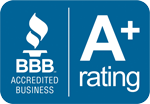You’ve worked many years to create a financial legacy for your family. But estate planning laws are complicated.
One or two simple mistakes can derail an estate plan and cost your heirs dearly in time, money and stress. Here are some of the most common estate planning mistakes and how to avoid them.
1. Trying to do it yourself
Online “estate-plan-in-a-box” products rarely accomplish the goals intended and can cause chaos afterwards, as the heirs are left to pick up the pieces.
Always use an attorney who knows your specific situation and objectives.
2. Assuming a will is enough
Your will only addresses items held in your own personal name. It doesn’t control retirement assets, life insurance policies, or anything else with designated beneficiaries.
It also doesn’t address assets held jointly with someone else.
For example, if you have title to a property in joint tenancy, your interest in the property won’t pass to your spouse or heirs. It will pass to the other owner(s). Speak to an attorney about the importance of proper titling.
3. Failure to name and update beneficiaries
Assets like retirement accounts, annuities and life insurance policies bypass probate and pass directly to your beneficiaries saving lots of time and money.
The catch: You have to designate them by name. Otherwise, the assets go into your estate, and are subject to probate. Name your beneficiaries on each account. And update them after each major life event.
4. Failure to plan for incapacity
Chances are reasonably high you’ll be incapacitated and unable to make decisions for yourself long before you pass away.
In too many cases, though, family members and attorneys are helpless to do anything to help because nobody has a legal power of attorney. Be sure to appoint someone in writing who can make financial and medical decisions on your behalf before the need arises.
5. Putting your children on your accounts
Some people try to avoid probate by putting their children’s names on bank accounts and other assets.
But it also exposes your assets to the claims of your children’s creditors. If your adult children declare bankruptcy or have judgments against them, plaintiffs’ attorneys will search for accounts held in their name. They may then present the judgment to the bank and levy your accounts.
6. Leaving trusts empty
Not every family needs to establish a trust. But when they do, it’s very common to forget to retitle assets. This means these assets stay in your own name, and never make it into the trust.
This leaves them in your estate, and potentially exposes them to spendthrift children, the claims of their creditors, or disgruntled former spouses. Once the trust is established, make sure to complete the process of transferring ownership of assets to them.
7. Failure to communicate
Estate plans do little good in dust-covered binders in office drawers, where no one else knows about them but you.
Speak to your family members. Let them know where your estate plan documents are, who your key advisors are, and what you need them to do.




